“Natural bodies are divided into three kingdoms of nature: namely the mineral, vegetable, and animal kingdoms. Minerals grow, Plants grow and live, Animals grow, live, and have feeling.” Carl Linnaeus
What does it mean to be human? Some of us were taught that we were made in the image of god. Does that mean we are earth-bound analogs of divinity? Deity doppelgangers? Some of us were taught that humans are animal relatives belonging to a very old and large evolutionary family tree. What does it even mean, this word “human?”
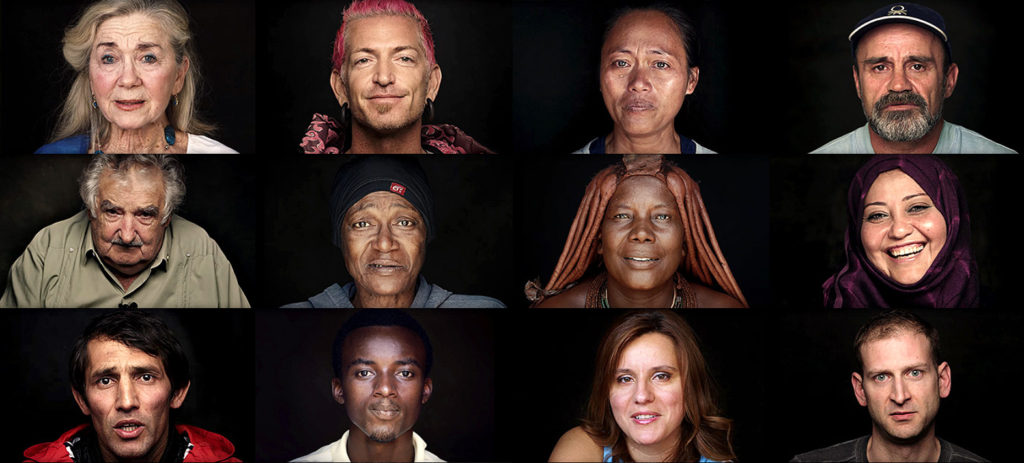
[If you would rather watch/listen, please click HERE for a video recording of this essay.]
About 200,000 years after our evolutionary arrival, precursors of the word “human” showed up in the 15th century in French by way of Latin and morphed its way through Old English into our lexicon in the 16th century and is based on the word “hummus” which means “earth” or “ground.” Two centuries later we were scientifically classified as Homo sapiens which loosely translates to “wise earth dweller.” Note that the word “human” preceded the scientific name “Homo sapiens” by 200 years. “Human” is not an extraction of or shorthand for “Homo sapien” even though it does share 4 of its 5 letters in sequence.
It was a Swedish biologist named Carl Linnaeus who gave us modern taxonomy in his first edition of Systema Naturae in 1735. He was the first biologist to formerly group together humans and other great apes based on observable shared physical characteristics. Not only was this unsettling for other biologists of the day, it was incompatible and unacceptable to theologians. Putting humans at the same level as apes would lower the spiritually higher position that humans were claimed to have according to the widely-accepted Great Chain of Being, the ancient hierarchical structure of all matter and life.
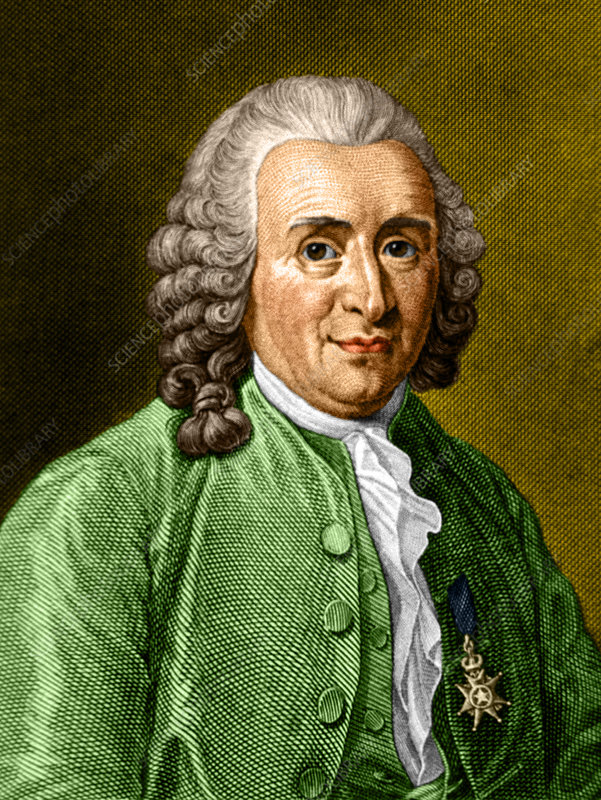
Under pressure of severe criticism, Linnaeus, in his 10th edition of Systema Naturae 23 years later, refined his taxonomy to give more definition between humans and other apes. He labeled humans as Homo sapiens and doubled down on his racially charged four hierarchical distinctions of humans based on their skin color and originating continents: white Europeans, red Americans, yellow Asians, and black Africans.
The first African slaves were brought to the New World over 100 years before Linnaeus wrote his first edition. As taxonomy developed and expanded, scientists began to force divisions of the human species into distinct hierarchical races in order to uphold existing racial constructs. In this way, popular science was used as a political tool.
Fast forward to the year 1859. The first oil well was drilled in Pennsylvania, Oregon became the 33rd state in the United States of America, the Republican Party, founded by anti-slavery activists, is just five years old, James Buchanan is President of the United States, and President Abraham Lincoln’s Emancipation Proclamation is eight years away. It is also the year that Charles Darwin’s Origin of Species was published in Great Britain.

Where Linnaeus systematically organized animals which were thought to be unchanging units in a divinely designed hierarchy, Darwin presented a new theory of natural selection which proposed that all animals, including humans, emerged or transmuted from other animals over long periods of time.
As scientists learned more and more about our biological connections and commonalities with other animals, there was a great political effort to disconnect humans from other animals and humans from each other in order to maintain human supremacy and a human hierarchy. European colonization around the world depended on the ability to justify dominion, domination, and extermination based on species and race.
Because wealthy men of European origin were the prevailing rulers and holders of power, being fully human came to mean being fully white and male which characterized what they believed to be the pinnacle human. Anyone of any other race, gender, or class was culturally and politically regarded as subordinate, inferior, subhuman, beastly, primitive, savage, nonhuman, or animal. This scale from the pinnacle human to the lowly animal determined social worth even while science was increasingly showing that humans are animals and connected to all other animals.
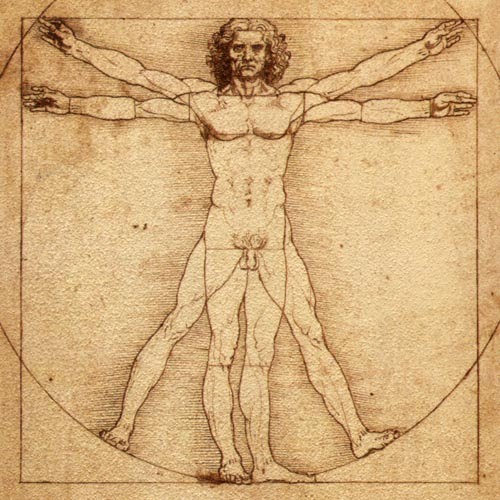
The word “human” became code for “white.” The division between white and nonwhite reflected the division between human and animal. White supremacy was simultaneously anti-nonwhite and anti-animal. It is this mindset that rationalized the genocide of native Americans and the enslavement of Africans.
Early gatherer-hunter humans rarely enslaved other humans. It was during the Age of Agriculture in the Old World when humans began to enslave other animals for labor and food which paved the path for enslaving other humans considered lesser, subhuman, primitive, or nonhuman. Devaluing animals provided the fuel for devaluing other humans.

It is this socially constructed framework of the human-animal continuum of domination and oppression that has laid the groundwork for how white race supremacy, male gender privilege, and human supremacy are cross-supported in modern day America. Maligning people with animals is one way oppressors justify actions of force, moral disregard, and exploitation. In order for the dehumanizing and animalizing of people to be effective, we must first culturally and collectively have agreed to objectify other animal species and regard them unworthy of moral consideration. We could not treat humans like animals if we didn’t already treat animals like animals which is to say like objects, things, or property.
This domination hierarchical mindset is what allows us in contemporary America to cage people of color and poor people “like animals” in prisons and detention facilities, to callously separate and destroy families, tolerate homelessness and unemployment, provide inadequate education and healthcare, terrorize and kill by police and military force, provide substandard food as sustenance, and withhold or block economic opportunities.
Exhale.
So what does it mean to be human? To me it means to be deeply complicated animals with the extraordinary gift of complex language skills to communicate to ourselves and to others imagined, and often self-serving, realities and actual, measured realities. For 10,000 years since the advent of agriculture we have gradually imagined that we are separate from nature and other animals despite scientific revelations informing us of our connections and interdependent relationships.

Modern scientific revelations have demonstrated that there is no and has never been scientific justification for the creation of human races. It was a political strategy to separate and rank humans in order to hoard power and resources for the ruling class. It is widely accepted today that all humans deserve to be born free and entitled to the possession of their own lives. I think it’s safe to say in this room that scientifically we accept that all humans are animals. If all humans are entitled to their individual freedom and if humans are animals, is it possible to think that every animal is entitled to their individual freedom and the possession of their own life? If it is unethical to treat the human animal as an object, thing, or property, is it also unethical to treat the nonhuman animal as an object, thing, or property?
What are our responsibilities to nonhuman animals? Could it be to see them as feeling individuals rather than objects, things, or property and to honor their freedom? Is it written anywhere that The Golden Rule applies only to humans? Could we decide to treat a cow like we would want to be treated if we were a cow?
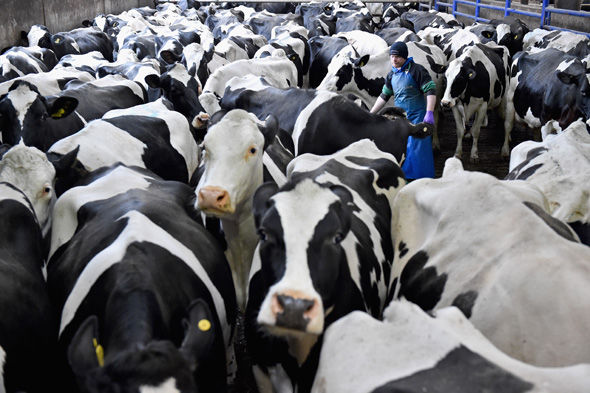
If we defend the rights of humans to be free, protect the lives of bald eagles, grizzly bears, humpback whales, and Florida manatees from going extinct, and enact laws that prohibit abusive treatment of dogs and cats, is there any moral justification for excluding any member of the Animal Kingdom from our circle of compassion?
Humans have an extraordinary gift of language. Words written, spoken, and symbolized shape people and cultures. With this gift, do you think it would be possible to shape a different way of being in relation to other animals?
When we say “humans and animals,” might we train ourselves to hear “animals and animals” and realize it is not only redundant but unnecessary and harmful to create separation? Might we accustom ourselves to talking about “human animals” and “nonhuman animals” by using these precise phrases which illustrate more cohesion than division? How about “animals” and “humanimals?” Rather than “it” might we refer to a turkey as a him or her? Might we consider a rat slated for the chambers of experimentation as someone instead of something?
Language is powerful. It helps shape the world that we experience. If we no longer practice objectifying animals, perhaps we can also end the animalization of people. If humans are individuals and if humans are animals, then all animals too are individuals who share with us common desires for food and water, shelter and companionship, freedom of movement and the avoidance of pain. In these ways that ultimately matter, we are all the same. I know that our hearts and our minds are capable of simultaneously caring about the wellbeing and freedoms of human animals and nonhuman animals alike. We do not need to choose between valuing and protecting people or valuing and protecting animals. In fact, the two are intertwined and are ultimately one problem to solve.
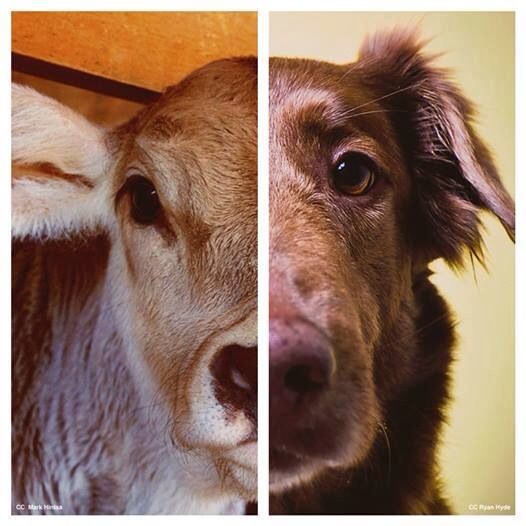
Refusing to subscribe to an animal-human divide or hierarchy is taking a concurrent stand against a racial history that continues to oppress people of color and against a massive system that turns nonhuman animals into objects of clothing, data, food, entertainment, adornment, medication, service, and transportation. The manufactured mindset that set these oppressive practices in motion was reliant upon the objectification of animals and the animalizing of humans. Fighting white supremacy without fighting human supremacy is fighting only half of the battle. The unchallenged other half helps keeps white supremacy possible and alive. The whole political human-animal spectrum needs to be retired and for that to happen animals must be elevated beyond the status of object, thing, or property.
May I suggest a post-human framework in which there is no human-animal divide or hierarchy? Would it be possible to move away from the words “human” and “animal” altogether and simply adopt the word “being” to describe each of us? If we need to be specific, can we say human being, squirrel being, pig being, and tiger being…all of us beings who exist to experience life for our own benefit? I challenge you to become more aware and mindful of your powerful language when you think and talk about all beings of the Animal Kingdom.
I leave you with this: according to weight, 60% of all mammals on Earth are livestock, 36% are human, and just 4% are wild mammals. Farmed poultry accounts for 70% of all birds on the planet, with just 30% being wild. If we continue this pattern, wild vertebrates are projected to completely die off by 2026…in SEVEN YEARS. If we continue to pull animals out of the oceans, the oceans are projected to be fishless by 2048. Well-functioning ecosystems, which are necessary to maintain a biosphere that can support human life, are contingent upon biological diversity.
Let’s challenge ourselves to live up to our name “wise earth dweller” by honoring and protecting the dignity and freedom of each and every animal being on this one beautiful planet we all share. In all the ways that matter, we beings are all the same. May all beings everywhere be free.
“We must acknowledge that man with all his noble qualities, with sympathy which feels for the most debased, with benevolence which extends not only to other men but to the humblest living creature, with his god-like intellect which has penetrated into the movements and constitution of the solar system — with all these exalted powers — Man still bears in his bodily frame the indelible stamp of his lowly origin.” Charles Darwin
HEALTH RESOURCES
Film: What the Health
Film: Forks Over Knives
Book: How Not to Die by Dr. Michael Greger
Book: The China Study by T. Colin Campbell, PhD
ENVIRONMENT RESOURCES
Film: Cowspiracy
Book: Comfortably Unaware by Dr. Richard Oppenlander
COMPASSION RESOURCES
Film: A Prayer for Compassion
Book: The Word Peace Diet by Dr. Will Tuttle
RACISM RESOURCES
Film: The Invisible Vegan
Book: Aphro-ism by Aph and Syl Ko
SUPPORT
For help with transitioning to a plant-based diet, please visit How To Get Started on a Whole Food, Plant-Based Diet.
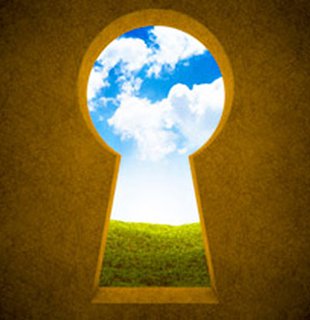
{ 0 comments… add one now }